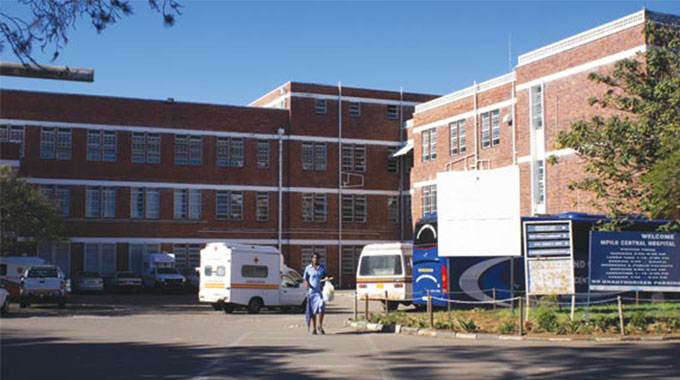
The Sunday News

Robin Muchetu, Senior Reporter
VISITING medical experts from the United Kingdom who were at Mpilo Central Hospital for renal training for clinicians have said Zimbabwe needs to adopt cost effective and emerging treatments for patients of kidney diseases as traditional ones were time consuming and expensive.
Consultant Nephrologist and Clinician and Director for Specialists Medicine at University Hospitals of Derby and Burton Dr Nitin Kolher said this in an interview with Sunday News after completion of the training yesterday.
One of the new methods is peritoneal dialysis, which is a treatment for kidney failure that uses the lining of the abdomen to filter blood inside the body.
“The doctor inserts a soft tube called a catheter in the stomach and a sterile cleansing fluid is pumped into the body to clean the blood. This fluid leaves the body via the same catheter when it is done cleaning the blood. This method of treating renal patients called peritoneal dialysis is much better because there is no need for electricity unlike the traditional hemodialysis where one has to be placed on a machine in a hospital for each session. This causes problems and peritoneal dialysis does not require all this and patients can dialyse themselves at home.
“What is needed is for the doctor to insert the peritoneal dialysis catheter in and a tube goes into the stomach just below the naval and it comes out from the side of the stomach and sits there. What the patient has to do is to put two litres of the dialysis fluid inside and they can do whatever work they have to do. After four to five hours they remove the fluid which would have been saturated with toxins and replace the fluid again,” he said.
Dr Kolher said the process takes 30 minutes and can be repeated every four to six hours.
“Imagine if one is employed and they have to ensure they secure their livelihood, then having to go to hospital for haemodialysis three times a week. This can be changed by adopting peritoneal dialysis. At Mpilo we trained clinicians on how to insert the peritoneal dialysis catheters and how to take care of patients. We also taught the nurses how to care for renal patients through community dialysis where you do not require bringing in the patient to the hospital,” he added.
Dr Kolher said the cost of peritoneal dialysis was much cheaper than hemodialysis. But he said there has to be a constant supply of the peritoneal dialysis fluid. Dr Kolher said when he arrived at the hospital last Monday there was no electricity and patients were waiting all day.
“Imagine if they had peritoneal dialysis kit, they would be at home and there is no need for power supply. In western countries this is now the first choice of dialysis and it is a good modality,” he said.
Dr Kolher said it was his hope that apart from the catheters and fluid that they had brought in from the UK, the only local Nephrologist at Mpilo Dr Stephen Kajawo will be able to get more supplies and be able assist patients. Dr Kolher said his aim was to have a sustainable service for people in Bulawayo who require dialysis and for specialists that concentrate in the area.
“I am thankful to the International Society of Nephrology which is the largest nephrology institution and they do a lot of philanthropic work and I am here as an education ambassador from that institution. They supported me and the other nurses to come to Zimbabwe for this exercise. The Universities of Derby and Burton also aided in bringing in the other nurses,” he said.
Dr Kolher said in a year, they would want to take to the UK the specialist doctor from Mpilo and a nurse to experience how they work so that they gain more knowledge. Senior sister Carol Rhodes who came with the team said the experience has been eye opening.
“We have enjoyed the stay sharing experiences but it has been totally different from what we have back in the UK. We cannot believe how easy it is for a patient in our hospital to get treatment as and when they need it while we noticed some struggles here. We have had to find different ways to deliver care that is needed here, which comes easy back home,” she said.
Sister Claire Macguire noted that power challenges were affecting treatment.
“It’s incredible how electricity affects treatment. During our training there was a black out and patients had to suffer an interruption in the dialysis and having to continue after power is restored. Simple things do affect treatment,” she said.



